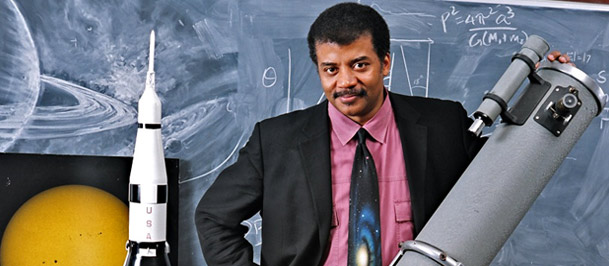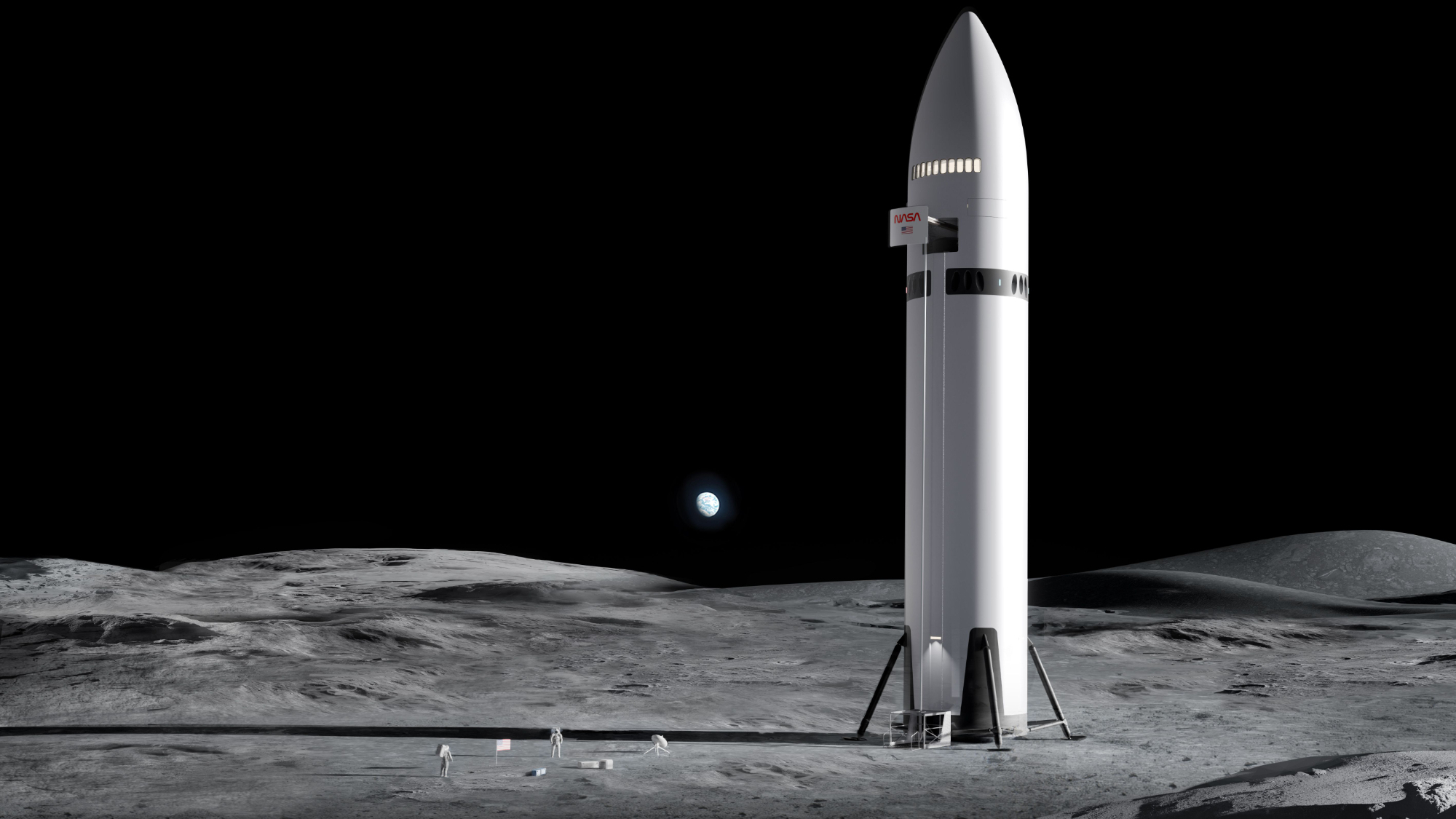Neil deGrasse Tyson: Leaving Earth Once Is Not Enough

Breaking space news, the latest updates on rocket launches, skywatching events and more!
You are now subscribed
Your newsletter sign-up was successful
Want to add more newsletters?

Delivered daily
Daily Newsletter
Breaking space news, the latest updates on rocket launches, skywatching events and more!

Once a month
Watch This Space
Sign up to our monthly entertainment newsletter to keep up with all our coverage of the latest sci-fi and space movies, tv shows, games and books.

Once a week
Night Sky This Week
Discover this week's must-see night sky events, moon phases, and stunning astrophotos. Sign up for our skywatching newsletter and explore the universe with us!

Twice a month
Strange New Words
Space.com's Sci-Fi Reader's Club. Read a sci-fi short story every month and join a virtual community of fellow science fiction fans!
Forty years after the first moon landing on July 20, 1969, SPACE.com asked Apollo astronauts and leaders of the space community to ponder the past, present and future. Astrophysicist Neil deGrasse Tyson, host of PBS's television series NOVA scienceNOW and the new StarTalk radio show, worries that Americans view spaceflight as a luxury rather than a fundamental science driver:
SPACE.com: Do you see a big difference between the public's involvement and interest in the space program back in the 1960s as compared to today?
Tyson: Back then, there was a keen awareness expressed by the public as well as by our lawmakers in Washington of the correspondence between creative investments in science and technology and our self image as scientific and technological leaders of the world. There was also an awareness of the role that those investments would play in our economic growth.
One of my worries in recent years has been the loss of that awareness. That absence of awareness is catching up, and it's holding us back while other nations are fully aware of this correspondence.
The trend lines in research and innovation look good for places such as India and China and less good for America as we go forward. So even if you're not enchanted by the prospect of cosmic discovery, the prospect of dying poor may be what it takes to understand the role of this adventure in the future of the natural world in which we live.
S: Do you think the public undervalues space exploration now?
T: Too many people view it as a luxury rather than as a fundamental driver to stimulate interest in science to everyone in the educational pipeline. It's vital to our prosperity and security.
Breaking space news, the latest updates on rocket launches, skywatching events and more!
S: Can the U.S. recover its status as a scientific leader?
T: While we may lose track of certain goals intermittently throughout the decades, I think we as a nation can be nimble when we need to be. All the buzz today is on the need for science literacy. That is on the agenda in ways it hasn't been in previous decades.
There is a growing awareness that we're losing our technological competitive edge. I think there's an awareness that we're losing our leadership, and that maybe our self image over the past several decades has been a little bit delusional. We tell ourselves we are leaders, and if you tell yourself enough you start to believe it.
S: Is part of the public apathy toward space exploration now because we don't have a goal as exciting as being the first nation to land on the moon?
T: There are countless space activities that would be no less exciting than the moon missions were, I have no doubt. The search for life on Mars, for example.We have some asteroids coming our way, why don't we deflect them?
It's like building a house in the middle of a huge continent, and then going into the backyard and saying, 'There's nothing more exciting than this. I'm done. I see stuff out there, but that's not going to be as interesting as this boulder right here.'
I can't think that way. I can't think that leaving Earth once is enough. How shortsighted would that be? We've never been that shortsighted before.
So I believe that the manned space program can engage the public by advancing the space frontier. Every next mission takes you farther out in space than you were before, either technologically or in terms of distance. For example the Gemini launches - none of them left Earth orbit but each was more ambitious. Each mission was something the press could talk about.
When you don't advance a frontier how could you possibly expect the public to be interested?
S: Were you inspired to pursue science at all because of the Apollo missions?
T: No, actually. My interest in the space program has a certain purity to it because I recognize the romance of it but I was never seduced by it. That allowed me to view it through a more purely scientific lens. My interest in space while in school came about through my scientific activities. (Editor's note: Tyson is the also director of the Hayden Planetarium at the American Museum of Natural History in New York City).
S: What do you think of NASA's current plans for manned spaceflight?
T: It looks pretty clear that the budget is not commensurate with expectations on NASA.
Either the portfolio must be tuned down or the budget is raised, or both. But something has to happen for NASA to go places.
I agree that we should go back to the moon and on to Mars. We should treat all objects in the solar system, including comets and asteroids, as exploration targets.
It is very possible that it can happen in my lifetime and I think it should. It's a matter of aligning the technological and political funding pistons to fire in harmony with each other. When they all fire together you can accomplish great things.
S: Do you think the current economic downturn presents a major roadblock to aligning those pistons?
T: It's not as though we didn't have problems before. It's not as though the '60s was some tranquil time of prosperity. One could argue it was one of the most troublesome decades in the history of the country, yet it was in that decade that we went to the moon.
As important as the civil rights movement was, I think what will rise to the top is that we left Earth in that time.
Forty years after astronauts first set foot on the moon, SPACE.com examines what we've done since and whether America has the right stuff to get back to the moon by 2020 and reach beyond. For exclusive interviews and analysis, visit SPACE.com daily through July 20, the anniversary of the historic landing.

Clara Moskowitz is a science and space writer who joined the Space.com team in 2008 and served as Assistant Managing Editor from 2011 to 2013. Clara has a bachelor's degree in astronomy and physics from Wesleyan University, and a graduate certificate in science writing from the University of California, Santa Cruz. She covers everything from astronomy to human spaceflight and once aced a NASTAR suborbital spaceflight training program for space missions. Clara is currently Associate Editor of Scientific American. To see her latest project is, follow Clara on Twitter.
